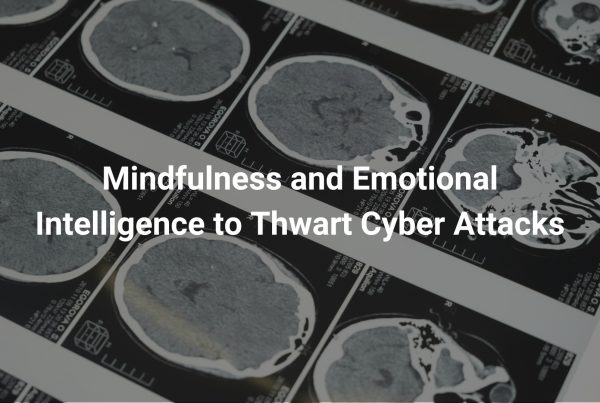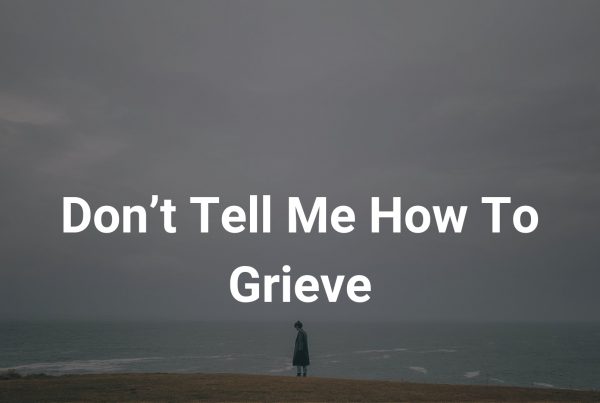Author: Erin Maloney
Published: May 16, 2023
Erin Maloney, LCSW, is the Director of Wellness at Innocent Lives Foundation since 2020. She provides wellness sessions as well as resources and referrals for the ILF team. Erin has been in the mental health field for over 20 years in different capacities, from drug and alcohol counseling to school-based mental health services. She thoroughly enjoys her work with the ILF team.
Q: What are some common misconceptions about mental health?
A: This is a wonderful question and I think it’s an important one in today’s world. Unfortunately, there are many misconceptions about mental health, including statements like: “therapy won’t help,” “I will be seen as weak if I ask for help, “I can do it on my own,” “nobody wants to hear my problems,” etc. There are other misperceptions like thinking that a therapist will immediately want to medicate someone or that they will judge someone’s behavior or decisions. Going to therapy should feel like a safe space to discuss concerns without feeling like one will experience retribution or negative consequences.
There has been a major rise in crime in our country, particularly with shootings. People become fascinated with the shooter, wondering what their motives were. Often we hear that the person either has a mental health history or that they needed help. In either situation, it has caused the nation to look at our mental health system.
My hope is that the mental health crisis in our nation is addressed on every level, i.e. government, community, and in your own home. This includes encouraging more people to go into the field (this might require revisiting how much mental health workers are compensated), more funding for services, encouraging friends and family to seek help when needed, etc. The more we talk about mental health and the benefits of therapy, the more desensitized people will become to seeking it for themselves.
Q: How can I better understand my own mental health?
A: There are many ways to dive into your own mental health. Obviously, I would recommend going to therapy if you can. However, if that is not possible, there are many self-help books out there in workbook form depending on what your specific needs are (e.g. decreasing anxiety, healing trauma, etc.). Psychology Today has an article on how to pick a self-help book: How to Find a Great Psychology Self-Help Book. Some tips include looking at the author’s credentials, examining the references, and having evidence-based techniques.
Self-awareness is key in recognizing where you might be struggling. Supportive friends and family might be able to provide insight into areas that you need to address. No one needs to have a mental health diagnosis to experience periods of time with anxiety or depression. Finding coping skills that work for you can help you get through these times. If, however, you find yourself in a situation when the coping skills aren’t effective and/or you see it is seeping into areas of your life (i.e. interpersonal relationships, work, etc.), it might be a good time to consider talking to a licensed mental health provider. Psychology Today’s Find a Therapist feature is a good place to start. Calling your insurance provider to find local licensed therapists in your area, who are under your policy, is another option. If finances are a concern, some therapists use a sliding scale fee depending on your income. The National Institute of Mental Health also lists resources for finding help if finances are a concern, such as federally funded resources, advocacy organizations, and crisis lines.
Q: What are some early warning signs of mental health issues?
A: NAMI (National Alliance on Mental Illness) is a great resource. They have an extensive list that answers how to recognize mental health issues. Any of the following symptoms could be due to a medical concern as well as a mental health concern, so you would want to speak to a health professional if you experience one or more of them consistently.
The following are common warning signs of a mental health issue in adults and adolescents:

Again, if these above symptoms interfere with your everyday functioning (e.g. getting out of bed, going to work or school, maintaining relationships), then please seek professional medical or mental health. If you feel suicidal or have hallucinations/delusions, you should seek help immediately.
Q: How can I support someone I know who is struggling with their mental health?
A: Supporting someone, who you see struggling with mental health concerns, can feel very intimidating, but in reality, it can be quite simple. Most people just want someone to listen to them and validate their feelings. You can do this by clearing your time to actively listen; this means not being distracted by your phone or other things around you. Repeating what the person is saying (in a non-robotic way) can be helpful in making sure you understand what they are trying to get across, allowing for them to correct any assumptions you might be making.
Validation includes telling them that you hear them and acknowledging that this must be difficult for them to share. You can ask questions in a non-accusatory way. It is important to avoid blaming and interrupting. Most people are not looking for someone to “fix” them or their situation. Offering unwanted advice or passively listening can quickly turn someone away.
If you sense the person is in need of professional help, please strongly encourage them to seek it. If there are barriers to treatment, such as transportation, time issues, etc., try to help them brainstorm on how to overcome those barriers.
Q: What are some effective coping strategies for managing mental health challenges?
A: Coping strategies are very individual to a person. What works for one person, may not work for another person. It is important to find what you will actually do or use in your everyday life when you become overwhelmed. The key is to use your skills as a habit BEFORE you become overwhelmed, so you can manage situations easier and with less stress. Some great coping skills to have down include:
- Establishing and maintaining boundaries – this helps prevent you from taking on too much
- Practicing relaxation strategies such as deep breathing, meditation, and mindfulness – helps with keeping your mind and body calm
- Getting regular physical activity – helps relieve stress
- Making to-do lists and setting goals – helps keep things on track
As noted above, please use the coping strategies that work for you, whether it is walking your pet or taking a bath. There are many great apps out there that can help guide you through skills if needed: two are Headspace and Calm, but there are many more.
Q: What are some common treatments for mental health issues, and how effective are they?
A: There are many types of treatments for mental health disorders and most of them have been proven effective. Depending on the intensity of someone’s symptoms (i.e. how they are functioning in their current environment) someone might need inpatient hospitalization or residential treatment. This is the highest level of care where the person stays at the facility. A step down from the hospital or a step up from outpatient therapy would be an intensive outpatient program. This usually entails three group sessions a week plus an individual therapy session, but this can vary depending on the program and the individual’s needs or progress. The least restrictive treatment is outpatient therapy.
Medication management is a treatment in which an individual meets with a psychiatrist to find the right medication and dosage to treat their diagnosed disorder if that is the path that one wants to pursue.
Outpatient therapy is the main treatment that most people are aware of and it is also known as psychotherapy or talk therapy. If someone is seeking medication management, it is also beneficial for them to be meeting with a therapist as well. However, it is not necessary to be on or seek medication to attend therapy in general. Most therapists have their own style and techniques and some even use an eclectic approach depending on their client’s needs and goals.
There are a lot of techniques that have been studied to show effectiveness. Cognitive behavioral therapy (CBT) is a personal favorite of mine. CBT focuses on changing thinking patterns, particularly unhealthy ones. The strategies involved may include:
- Learning to recognize one’s distortions in thinking that are creating problems and then reevaluate them in light of reality.
- Gaining a better understanding of the behavior and motivation of others.
- Using problem-solving skills to cope with difficult situations.
- Learning to develop a greater sense of confidence in one’s own abilities.
There are many other types of therapy approaches, such as behavioral therapy, psychodynamic psychotherapy, drug and alcohol therapy, person-centered therapy, solution-focused therapy, and the list goes on. You can try different therapists or ask about different styles to see what feels right for you.
In addition to the therapy styles above, some people seek alternative methods for treating mental health disorders, such as acupuncture, taking various herbs, support groups (these can be run by a peer or by a mental health professional), etc.
Q: What are some resources or organizations you recommend for learning more about mental health?
A: There are several great mental health resources out there. I mentioned NAMI and Psychology Today above as great resources. I also recommend Mental Health First Aid, National Institute of Mental Health, Substance Abuse and Mental Health Services Administration, and 988 Suicide & Crisis Lifeline.
You can also go to Innocent Lives Foundation’s resource page for reporting incidents and for mental health resources.
In conclusion, I appreciate the thoughtful questions above and I always like when there is a dialogue about mental health, in general, to help break the stigma. My answers throughout this post point to my overall recommendation, which is to please seek out professional help for yourself or your loved ones when you are concerned about safety, lack of coping skills, or a lower level of functioning than in the past. There is ALWAYS help out there when needed!
Erin Maloney is the Director of Wellness for Innocent Lives Foundation. She specializes in trauma, addiction, secondary trauma, ADHD, anxiety, depression, and other mood disorders. She uses cognitive behavioral therapy as well as tools from other approaches to create a style to work with each person individually.
Erin earned her Bachelor of Science degree in psychology from Saint Joseph’s University in Philadelphia, PA. She then earned her master’s degree in social work from Widener University in Chester, PA.





